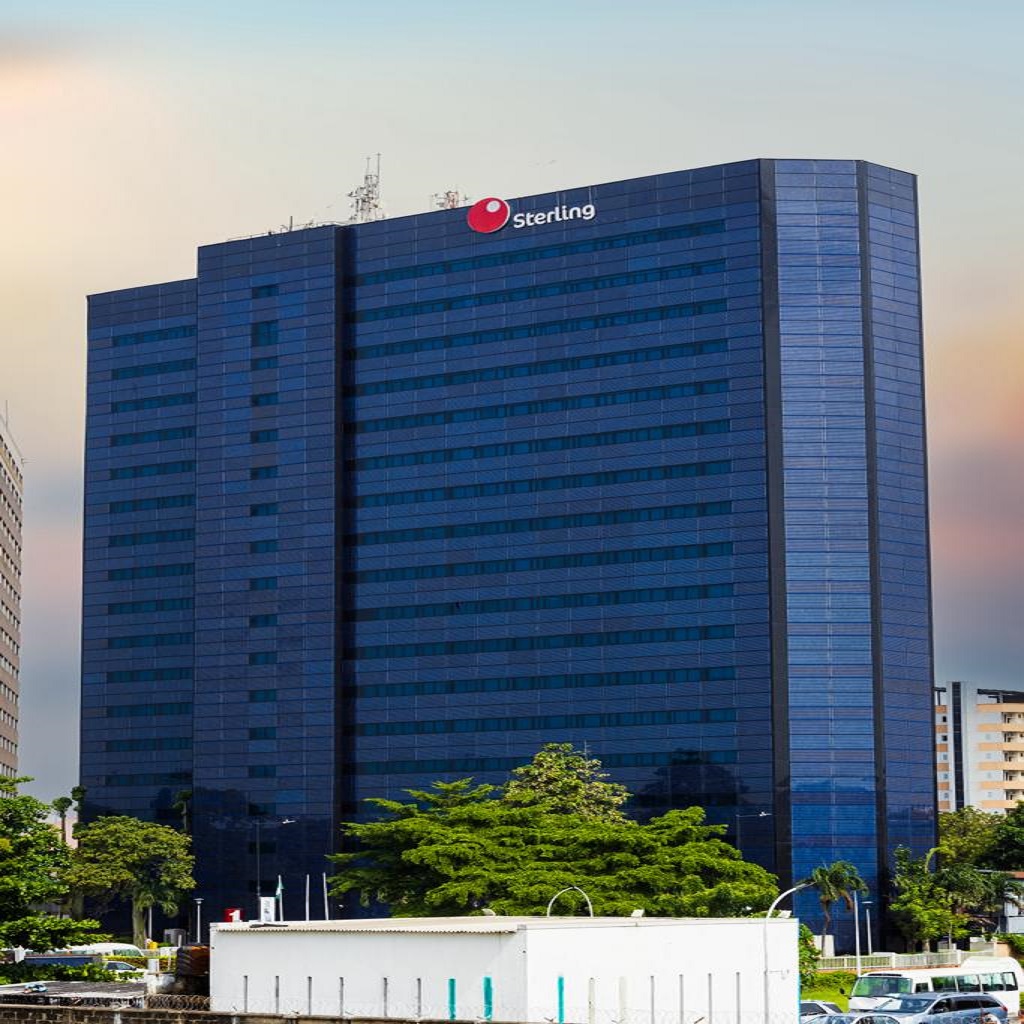E-Financial
How Fintechs Are Closing the Banking Gap

By Adeniyi Ogunfowoke,
Over 60 million Nigerians are unbanked. This simply means there is a huge banking gap that needs to be bridged. Unfortunately, a large population of the unbanked or underbanked are located in rural areas. In these areas, there are just a handful of financial institutions. This is one of the reasons why Nigeria’s apex bank, the Central Bank of Nigeria is encouraging banks to open more branches, especially in rural areas. The question now is for how long? This question arises because there is a dire need to bridge the gap.
Fortunately and thanks to technology, the concept of fintech came up and it has unarguably disrupted the financial scene. The most staggering impact it is having is that it is making inroads in helping to close the financial gap between the banked and the unbanked. So, how are fintechs pulling this off? Read to know some of the ways.
Online lending
Online lenders are on the rise, and with that blooming industry, the need to drive to a local branch and sit down with a banker to apply for a loan is fairly obsolete. Instead, rural residents can apply for loans from their smartphone wherever they are. Many traditional banks allow online application and they will take forever before they respond. However, for fintechs, they will lend you huge sums of money within 24 hours, as long as you meet their criteria.
Making payment seamless
Paying for online services is no longer rocket science. It is accessible to everyone notwithstanding whether you are in the rural or urban area. Of course, you must have an internet connection. So, you can order and pay without issues. For example, with Jumia Pay, you can pay for food, hotel and groceries you ordered online and it will be delivered at your doorstep. This has, to a very large extent, reduced cash-on-delivery payments. Therefore, you do not need to keep wads of cash at home just because you want to pay for your order.
Business banking integration
Many rural residents own farms, ranches, and home-based businesses, and so banking access is more than just depositing a paycheck or needing a debit card. Customers with business-based banking needs can also, through fintech, integrate their business banking into those same apps and online access. Accounting software can link bank accounts and accountants as well, offering even more of a streamlined experience. Additionally, people can now easily apply for small business loans without having to travel to a bank or lender, making it much easier to access capital when necessary.
The simplicity of the process
Fintechs are having a gigantic leeway because their modus operandi is not cumbersome. It’s quick, fast and responsive when compared to the banks. Due to this, this has encouraged Nigerians to use them. Also, the number of fraud cases are considerably low in comparison to the banks. Due to this a lot of people are very much attracted to them.
E-Financial
FirstCap MD says Payment Security Remains Biggest Barrier to Bankable Gas and Power Projects

Ukandu E. Ukandu, Managing Director/CEO of FirstCap Limited, a leading investment banking firm and subsidiary of First HoldCo Plc., has reaffirmed that payment security remains the most decisive factor in determining whether gas and power projects in Nigeria secure financing.

He shared this perspective during a panel discussion on project bankability at the 2026 SPE Lagos Energy Week.
Ukandu noted that although several risks influence financing decisions, payment risk consistently emerges as the key barrier to financial close.
“Every major risk matter, but payment risk is the ultimate deal‑breaker. Without strong payment security and disciplined collections, no project can attract sustainable financing,” he said.
He explained that lenders typically evaluate three core risk pillars, payment reliability, foreign‑exchange exposure, and contract enforceability, with payment reliability presenting the greatest challenge across Nigeria’s energy value chain. Persistent collection inefficiencies, rising arrears, and liquidity pressures continue to weaken investor confidence.
To enhance payment security, Ukandu highlighted mechanisms widely used by financiers, including letters of credit, bank guarantees, escrow accounts with payment‑waterfall structures, reserve and sinking funds, sovereign or sub‑sovereign support, and take‑or‑pay offtake agreements.
Addressing foreign exchange risk, he noted that volatility remains difficult to manage, especially for projects with dollar‑denominated costs but naira‑denominated revenues. Lenders typically mitigate this through foreign exchange ‑linked tariff indexation, partial dollarisation for credible industrial offtakers, escrow protections, selective hedging, and foreign exchange reserve buffers.
However, he cautioned that indexation alone seldom eliminates exposure due to regulatory limits and timing delays.
On legal and regulatory certainty, Ukandu stressed the need for contracts that are enforceable and clearly structured, particularly around take‑or‑pay obligations, termination payments, step‑in rights, and dispute‑resolution frameworks. He added that factors such as tariff adjustments, licence changes, and price controls can significantly affect project viability if they are not fully addressed at the contracting stage.
While fiscal incentives such as tax holidays and accelerated depreciation can strengthen project economics, Ukandu emphasised that they cannot compensate for weak fundamentals.
“Incentives make a good project better, but they do not make a weak project bankable. Cash‑flow reliability and disciplined foreign exchange management must come first,” he said. He also noted that naira‑based incentives may lose value if project revenues are not indexed.
He concluded by urging industry players to prioritise revenue security from the earliest stages of project structuring: “Protect returns at the source. Build strong offtake arrangements with solid credit support and currency alignment to ensure cash is received in full and on time.”
E-Financial
Sterling HoldCo Starts Allotment of Oversubscribed Public Offer Shares

Sterling Financial Holdings Company Plc (Sterling HoldCo) has begun allotting 12,581,000,000 ordinary shares of 50 kobo each at ₦7.00 per share from its 2025 Public Offer.

Sterling HoldCo
The process follows Central Bank of Nigeria (CBN) and Securities & Exchange Commission (SEC) approvals.
The offer, opened September 15, 2025, drew 18,280 applications for 16.84 billion shares worth ₦117.88 billion—109.79 per cent oversubscribed.
Valid applications from 18,276 shareholders totalled 13.81 billion shares; all compliant applicants receive full allotments.
Refunds for rejects/excess, plus interest, process via RTGS/NIBSS by February 17, 2026, handled by Pace Registrars Limited.
Shares credit to CSCS accounts by the same date; new accounts held in pool pending documentation.
The raise bolsters capital for banking subsidiaries, injects ₦10 billion into SterlingFI Wealth Management to meet SEC rules, and funds credit expansion, innovation, and support for businesses/households.
Strong Financials, Diversified Growth
FY25 interim results show 99 per cent profit before tax growth; gross earnings up 46 per cent to ₦476.5 billion; assets at ₦3.92 trillion; deposits up 18 per cent to ₦2.98 trillion; shareholders’ funds up 39 per cent to ₦424 billion.
Cost-to-income ratio improved to 63 per cent from 72 per cent.
Subsidiaries—Sterling Bank Limited (conventional), The Alternative Bank Limited (non-interest, 150+ branches)—comply with CBN capital rules.
Initiatives include Mata Zalla (women tricycle training) and Plateau agriculture programme.
The offer attracted first-time retail investors, broadening ownership.
Sterling HoldCo welcomes new shareholders, poised for sustained growth and economic impact.
E-Financial
Ecobank Nigeria Fully Repays $300m Eurobond Notes

Ecobank Nigeria has announced the successful repayment of the outstanding principal and accrued interest on its original $300 million Eurobond due February 16, 2026, marking a significant milestone in its liability management strategy and overall balance sheet strengthening efforts.

Following the full repayment of the Eurobond obligations, the Bank stated that it will now focus its funding initiatives primarily on the domestic capital markets. T
his strategic shift reflects growing confidence in Nigeria’s local debt market and aligns with Ecobank Nigeria’s long-term objective of optimising funding costs while deepening its participation in the domestic financial ecosystem.
“Going forward, Ecobank Nigeria will prioritise domestic credit ratings and local debt issuance to achieve its funding objectives,” stated Ogorchukwu Okwechime, Financial Controller, Ecobank Nigeria, in Lagos.
He added that the successful repayment reinforces the Bank’s commitment to maintaining a resilient balance sheet and sustaining investor confidence.
The tender offer was conducted with Renaissance Capital Africa (Renaissance Securities Nigeria Limited) acting as financial adviser and dealer manager, while Sodali & Co Limited served as tender agent.
The notes were originally issued by EBN Finance Company B.V., with limited recourse to the issuer, for the sole purpose of financing the purchase of the US$300 million 7.125 per cent Senior Note due 2026 issued by Ecobank Nigeria.
The transaction underscores Ecobank Nigeria’s proactive approach to liability management, prudent capital planning, and strategic alignment with evolving market conditions.
It further positions the Bank to leverage domestic funding opportunities while maintaining financial flexibility and operational stability.

 Telecom2 days ago
Telecom2 days agoTerra Moves to Expand in African Drone Sector, Secures $22m Funding

 Telecom2 days ago
Telecom2 days agoTemu Assures Compliance Amid Nigeria Data Privacy Probe

 E-Financial2 days ago
E-Financial2 days agoDMO Offers ₦800bn FGN Bonds in February Auction Surge

 E-Financial2 days ago
E-Financial2 days agoDanjuma, Taj Bank Staff Jailed for 5 Years over N22m Fraud

 E-Financial2 days ago
E-Financial2 days agoKPMG Outlook Reveals Financial Services CEOs Double down on AI, Resilience and Growth in 2026

 Telecom3 days ago
Telecom3 days agoMTN Group Announces Proposed Full Acquisition of IHS Towers

 News2 days ago
News2 days agoChianugo, Nigerian $150m suit Against Google, GoDaddy.com Stalled due Judge’s Absence

 General News2 days ago
General News2 days agoFG to Review MTN’s $6.2Bn IHS Acquisition — Tijani


























